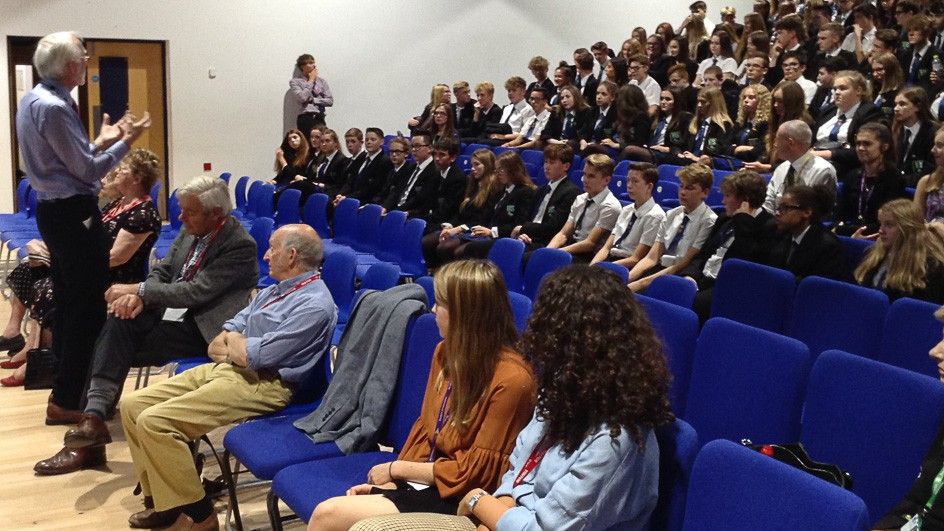Article Date: 12 October 2018
Article Date: 12 October 2018
Notley High School & Braintree Sixth Form hosts the award of the John Ray Trust Science Prize 2018Around 200 science students and staff from Years 10, 11, 12 and 13 gathered last week to see Talia Hubble, a student from the University of Cambridge, talk about the project which had won her the John Ray Trust Science Prize 2018 and to give an insight into her work and her time as a student at the university.
Talia, a graduate of Natural Sciences from the university, spoke about her work, carried out in the third year of her degree, involving research into generating an in-vitro model for post-implantation human embryos. Currently, there is no model cell system which can be used to mimic how a human embryo develops and there are obviously moral and ethical issues around using human embryos for such research. So, models developed in other animals such as mice or primates tend to be used for research and there is a great need to develop a suitable model system which is based on human cells. Talia’s work, although not complete yet, has shown the way forward to being able to use such a model to test cancer drugs and other therapies.
Talia went on to talk about her time at university and gave some tips for why going to university to study science is a good idea; her most insightful comment being that ‘science is a creative subject based on logic’.
Students at Notley High School & Braintree Sixth Form had plenty of questions for Talia and she was able to speak informally to students after the presentation to pass on advice about applying to university and about student life.
For further details please contact Mr Vosper, Director of Science, Notley High School & Braintree Sixth Form
Talia, a graduate of Natural Sciences from the university, spoke about her work, carried out in the third year of her degree, involving research into generating an in-vitro model for post-implantation human embryos. Currently, there is no model cell system which can be used to mimic how a human embryo develops and there are obviously moral and ethical issues around using human embryos for such research. So, models developed in other animals such as mice or primates tend to be used for research and there is a great need to develop a suitable model system which is based on human cells. Talia’s work, although not complete yet, has shown the way forward to being able to use such a model to test cancer drugs and other therapies.
Talia went on to talk about her time at university and gave some tips for why going to university to study science is a good idea; her most insightful comment being that ‘science is a creative subject based on logic’.
Students at Notley High School & Braintree Sixth Form had plenty of questions for Talia and she was able to speak informally to students after the presentation to pass on advice about applying to university and about student life.
For further details please contact Mr Vosper, Director of Science, Notley High School & Braintree Sixth Form

